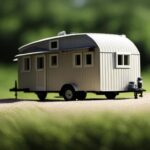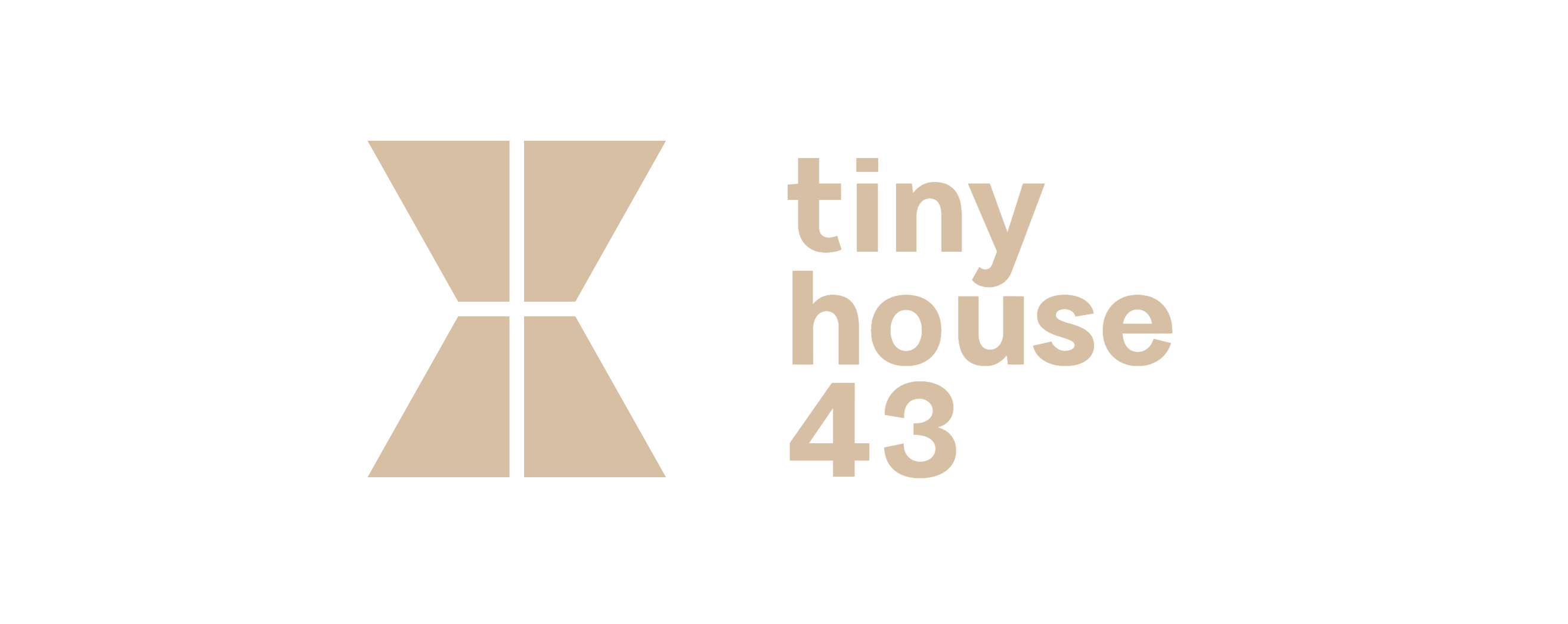Beginners Guides
How Much Is A Tiny House In North Carolina

Have you ever dreamed of owning a tiny piece of paradise? In North Carolina, you can make that dream come true by purchasing a tiny house. Imagine a cozy retreat nestled among rolling hills – a refuge where simplicity and minimalist living are key.
Like a hidden gem, these tiny houses offer a unique and affordable lifestyle, allowing you to escape the hustle and bustle of city living. But how much does a tiny house in North Carolina actually cost?
In this article, I will explore the factors that affect tiny house prices, the average cost in North Carolina, and affordable communities to consider. We will also discuss financing options, DIY versus pre-built houses, and additional expenses to keep in mind.
So, let’s embark on this journey together and discover the world of tiny house living in North Carolina.
Key Takeaways
- Tiny houses in North Carolina offer an affordable and unique lifestyle option.
- The price of tiny houses in North Carolina varies depending on factors such as size, layout, location, and amenities.
- Regulations for tiny houses in North Carolina differ from county to county, including guidelines on minimum square footage and plumbing/electrical systems.
- There are various financing options available for owning a tiny house in North Carolina.
Overview of Tiny House Living
If you’re looking to simplify your life and embrace minimalism, living in a tiny house can offer you the freedom and flexibility you crave. Tiny house living has gained popularity in recent years, as more people are seeking alternatives to traditional housing.
However, before you embark on this unique lifestyle, it’s important to understand the regulations surrounding tiny houses. In North Carolina, regulations regarding tiny houses vary from county to county. Some areas have specific zoning laws that allow for tiny houses, while others may require them to be classified as accessory dwelling units or park models. It’s crucial to familiarize yourself with these regulations to ensure that you can legally live in a tiny house in your desired location.
Despite the challenges posed by regulations, there are numerous benefits to living in a tiny house. One of the most obvious advantages is the cost savings. Tiny houses are significantly cheaper to build and maintain compared to traditional homes. They require less energy to heat and cool, resulting in lower utility bills. Additionally, the smaller space encourages a simpler lifestyle, which can lead to reduced stress and increased happiness.
Now that we’ve explored the benefits and regulations of tiny house living, let’s delve into the factors that affect tiny house prices in North Carolina.
Factors Affecting Tiny House Prices in North Carolina
When it comes to the prices of tiny houses in North Carolina, there are several factors that can have an impact.
One of the key factors is the size and layout of the house, as larger and more complex designs tend to be more expensive.
Another important factor is the location of the house, with houses in more desirable areas often commanding higher prices.
Lastly, the amenities and features included in the tiny house can also affect the price, with more luxurious and high-end features driving up the cost.
Size and Layout
Located in the beautiful state of North Carolina, you can find cozy and charming tiny houses that offer a variety of sizes and layouts. When it comes to size and affordability, tiny houses in North Carolina give you the flexibility to choose a size that fits your needs and budget.
From compact options perfect for individuals or couples to slightly larger ones suitable for small families, there is a tiny house to suit everyone. Additionally, these houses provide ample opportunities for design and customization, allowing you to personalize your living space and make it truly unique. Whether you prefer a rustic cabin style or a modern sleek design, the options are endless.
As we transition into the next section about location, it’s important to consider that North Carolina offers a diverse range of landscapes and communities, making it an ideal place to park your tiny house and call it home.
Location
Nestled within the scenic landscapes and vibrant communities, you’ll stumble upon the perfect spot to nestle your cozy abode in the charming state of North Carolina. When it comes to the location of tiny houses in North Carolina, there are plenty of options to choose from. The state offers a diverse range of affordable housing opportunities, making it an attractive destination for those looking to join the tiny house movement. Whether you prefer the bustling city life in Raleigh or the tranquility of the Appalachian Mountains, North Carolina’s real estate market has something for everyone. To give you an idea of the available options, take a look at the table below:
| Location | Average Price Range |
|---|---|
| Raleigh | $70,000 – $130,000 |
| Asheville | $60,000 – $120,000 |
| Charlotte | $80,000 – $140,000 |
| Wilmington | $50,000 – $100,000 |
| Boone | $70,000 – $120,000 |
With these affordable prices, you can find your perfect tiny house in North Carolina and enjoy all the amenities and features the state has to offer.
Amenities and Features
Immerse yourself in the charm of North Carolina and discover the array of amenities and features that await in your cozy abode.
Tiny houses in North Carolina offer a variety of amenities and features that make them a popular choice for those seeking a minimalist lifestyle. Some of the common amenities found in these small homes include efficient kitchenettes, compact bathrooms, and clever storage solutions. Additionally, many tiny houses in North Carolina are equipped with eco-friendly features such as solar panels and rainwater collection systems.
However, it’s important to consider the pros and cons of living in a tiny house. While the small size encourages a simpler way of life and helps reduce environmental impact, it may also require sacrificing certain comforts and space.
As you weigh your options, keep in mind that the average cost of tiny houses in North Carolina will be discussed in the next section.
Average Cost of Tiny Houses in North Carolina
To get a sense of the average cost of tiny houses in North Carolina, picture yourself walking through a charming neighborhood, where these compact and economically efficient dwellings blend seamlessly into the landscape.
Tiny houses have gained popularity in recent years due to their affordability and minimalistic lifestyle. When it comes to the cost comparison, tiny houses in North Carolina generally range from $30,000 to $100,000, depending on the size, design, and amenities. It’s important to note that the cost may vary based on individual preferences and customizations.
Additionally, tiny house regulations in North Carolina allow for these small dwellings, but they must comply with certain guidelines, such as minimum square footage requirements and regulations regarding plumbing and electrical systems.
Overall, tiny houses offer an attractive option for those looking to downsize or live more sustainably.
Now, let’s transition to the subsequent section about affordable tiny house communities in North Carolina, where you can find like-minded individuals and enjoy the benefits of a supportive community.
Affordable Tiny House Communities in North Carolina
Imagine yourself living in a vibrant and welcoming community, where affordable and sustainable living is at the forefront, and where like-minded individuals come together to embrace the joys of tiny house living in North Carolina. In North Carolina, there are several affordable tiny house communities that offer an ideal setting for those looking to downsize and live a simpler life. These communities not only provide affordable housing options but also foster a sense of belonging and camaraderie among residents.
One such community is the Tiny House Village in Asheville, North Carolina. This community is specifically designed for tiny house living and offers a range of amenities such as communal gardens, shared workspaces, and recreational areas. The Tiny House Village also adheres to the necessary zoning regulations, ensuring that residents can legally live in their tiny homes.
Another option is the Watershed Cabins in Bryson City, North Carolina. While not exclusively a tiny house community, Watershed Cabins offer tiny house rental opportunities for those who want to experience the tiny house lifestyle without committing to a permanent residence. These rentals provide a unique opportunity to test out tiny house living and determine if it’s the right fit for you.
Transitioning into the subsequent section about financing options for tiny houses, it’s important to explore the various ways to make owning a tiny house in North Carolina a reality.
Financing Options for Tiny Houses
When it comes to financing your dream of living in a cozy little abode, you’ll be delighted to discover the array of options available to turn your tiny house dreams into a reality. In North Carolina, there are several tiny house financing options to consider.
One popular choice is obtaining a tiny house loan through various loan programs specifically designed for tiny house enthusiasts. Many financial institutions offer specialized loans for tiny houses, providing you with the necessary funds to purchase or build your tiny house. These loans typically have flexible terms and competitive interest rates, making them an attractive option for those looking to embark on their tiny house journey. Additionally, some loan programs cater specifically to low-income individuals or first-time homebuyers, making it easier for them to obtain financing for their tiny house.
Another financing option is to explore personal loans or lines of credit. These can be used to fund your tiny house project and usually offer more flexibility in terms of usage. You can use the funds to purchase materials, hire contractors, or cover other expenses related to building your tiny house.
Transitioning into the next section about ‘diy vs. pre-built tiny houses,’ it’s important to consider your financing options before making a decision. Whether you choose to build your own tiny house or purchase a pre-built one, understanding the available financing options will help you make an informed choice that aligns with your budget and preferences.
DIY vs. Pre-built Tiny Houses
Opting for a personally constructed abode versus a professionally assembled one presents a decision to weigh carefully when considering financing options. When it comes to tiny houses, there are two main options: building your own (DIY) or purchasing a pre-built tiny house. Both options have their pros and cons.
Building your own tiny house allows for complete customization and the satisfaction of creating something with your own hands. It also offers the opportunity to save money by utilizing recycled materials or doing the labor yourself. However, DIY projects require a significant amount of time, effort, and skill. Additionally, there may be a learning curve and unexpected challenges along the way.
On the other hand, purchasing a pre-built tiny house offers convenience and a quicker move-in time. These houses are often built by professionals with expertise in tiny house construction. They are typically designed with efficiency and functionality in mind. However, pre-built houses can be more expensive and may limit customization options.
To summarize, the choice between DIY and pre-built tiny houses depends on individual preferences, skills, and budget. Considering the pros and cons of each option is crucial before making a decision. In the next section, we will discuss additional expenses to consider when financing your tiny house, helping you make an informed choice.
Additional Expenses to Consider
To make an informed choice about financing your dream abode, you need to be aware of the additional expenses that come with building or buying a tiny house.
While the initial cost of a tiny house may be lower than that of a traditional home, there are still some expenses that you should consider.
One of the main additional expenses is the cost of land. Whether you choose to buy or rent a piece of land, it’s important to factor this into your budget.
Additionally, you’ll need to consider the cost of utilities such as water, electricity, and sewage. Depending on the location of your tiny house, these expenses can vary greatly.
Furthermore, maintenance costs should not be overlooked. Just like any other home, tiny houses require regular maintenance and repairs. This can include anything from painting and roofing to plumbing and electrical work. It’s important to budget for these expenses to ensure that your tiny house remains in good condition.
With these additional expenses in mind, let’s move on to some tips for finding the right tiny house in North Carolina.
Tips for Finding the Right Tiny House in North Carolina
If you’re searching for your perfect cozy retreat, there are some helpful tips that can guide you towards finding the ideal tiny home in the beautiful state of North Carolina.
First and foremost, it’s important to do your research and find reputable tiny house builders in the area. Look for builders who’ve experience constructing tiny homes and who can provide you with references or examples of their previous work. This’ll ensure that you’re working with professionals who can create a high-quality, well-built tiny house.
Additionally, it’s crucial to familiarize yourself with the zoning regulations for tiny houses in North Carolina. Each county may have different regulations regarding where you can park or build your tiny home. Make sure to check with local authorities to ensure that you’re in compliance with all zoning laws. This’ll save you from any potential legal issues down the line.
By finding reliable builders and understanding the zoning regulations, you’ll be well-prepared to find your dream tiny home in North Carolina. Once you’ve found the perfect tiny house, you can start enjoying the perks of living in a cozy and sustainable space.
In the next section, we’ll explore testimonials from tiny house owners in North Carolina to give you a glimpse into their experiences.
Testimonials from Tiny House Owners in North Carolina
After researching and gathering tips for finding the right tiny house in North Carolina, I stumbled upon some fascinating testimonials from tiny house owners in the state. These firsthand accounts shed light on the unique experiences of living in a tiny house and the challenges faced by tiny house owners in North Carolina.
One common theme that emerged from these testimonials was the sense of freedom and simplicity that comes with living in a tiny house. Many owners expressed how liberating it was to downsize their belongings and live a more minimalist lifestyle. They spoke of the joy they found in living with only what they truly needed and the sense of peace that came with it.
However, it wasn’t all sunshine and rainbows for these tiny house owners. They also shared the challenges they faced, such as finding suitable parking spaces and navigating zoning regulations. Some had to spend a considerable amount of time and effort searching for the perfect spot to park their tiny house, while others had to navigate complex zoning laws to ensure their homes were legal and compliant.
Overall, these testimonials provide valuable insights into the experiences of living in a tiny house in North Carolina. From the freedom and simplicity to the challenges faced, these accounts offer a well-rounded perspective on the reality of tiny house living in the state.
Frequently Asked Questions
Are there any zoning regulations or restrictions for building or parking a tiny house in North Carolina?
Zoning regulations and parking restrictions for tiny houses in North Carolina are subject to local jurisdiction and can vary across the state. It’s important to research and understand the specific rules and requirements in your desired location.
However, it’s worth noting that an estimated 60% of North Carolina municipalities have zoning ordinances that allow for accessory dwelling units, which can include tiny houses. These regulations aim to promote affordable housing options and sustainable living.
What are the maintenance costs associated with owning a tiny house in North Carolina?
Maintenance costs for a tiny house in North Carolina can vary depending on factors like size, materials used, and location. Some common expenses may include regular cleaning, repairs, and utility bills.
Additionally, it’s important to budget for things like insurance and property taxes. When it comes to financing options, individuals can explore options such as personal loans or RV loans. It’s crucial to research and compare different lenders to find the best terms and rates that suit your needs.
Are there any specific insurance requirements for tiny houses in North Carolina?
Insurance coverage for tiny houses in North Carolina may vary depending on the insurance provider and the specific features of the house. It’s important to check with different insurance companies to find a policy that suits your needs. Policy rates can also vary based on factors such as the size of the house, location, and value. It’s recommended to shop around and compare quotes to ensure you get the best coverage at the most affordable rates.
How long does it typically take to build a DIY tiny house in North Carolina?
Typically, building a DIY tiny house in North Carolina takes around 3 to 6 months, depending on the complexity of the project and the amount of time dedicated to construction.
However, it’s important to consider the challenges that come with building a tiny house, such as obtaining permits, finding suitable land, and adhering to building codes. These factors can extend the construction timeline and require careful planning and research.
Are there any grants or incentives available for purchasing or building a tiny house in North Carolina?
Grants and incentives are available for purchasing or building a tiny house in North Carolina. There are various financing options to explore. It’s important to research and apply for grants that align with your specific needs and goals.
Additionally, you can explore financing options such as personal loans or specialized lenders that cater to tiny house projects. These resources can help make your dream of owning or building a tiny house in North Carolina more affordable and attainable.
Conclusion
In conclusion, living in a tiny house in North Carolina offers a unique and affordable way to embrace a minimalist lifestyle.
With factors such as location, size, and amenities influencing prices, it’s important to do thorough research before making a purchase.
From affordable communities to financing options, there are various ways to make your tiny house dream a reality.
Whether you choose to build your own or buy a pre-built tiny house, the possibilities are endless.
So, why not take a leap, join the tiny house movement, and create a cozy and sustainable home in beautiful North Carolina?
Hi, I’m Emma. I’m the Editor in Chief of Tiny House 43, a blog all about tiny houses. While tree houses are often associated with childhood, they can be the perfect adult retreat. They offer a cozy space to relax and unwind, surrounded by nature. And since they’re typically built on stilts or raised platforms, they offer stunning views that traditional homes simply can’t match. If you’re looking for a unique and romantic getaway, a tree house tiny house might just be the perfect option.
Beginners Guides
Episode Where Coyote Buys Tiny House On Grace And Frankie
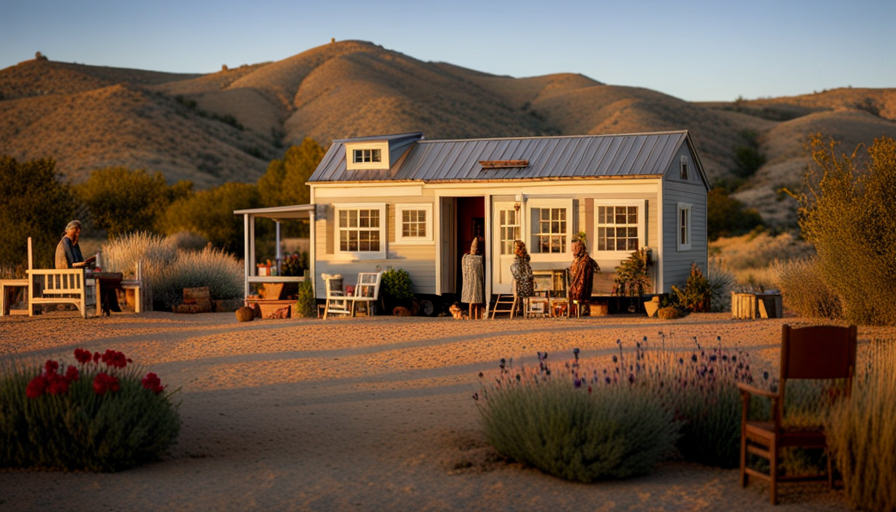
Get ready to be completely blown away by the most hilarious and heartwarming episode of Grace and Frankie yet!
In the episode where Coyote buys a tiny house, prepare for a rollercoaster of emotions as we delve into the world of minimalist living.
This episode takes us on a journey through the challenges and triumphs of living in a tiny home, showcasing the incredible transformation that takes place in Coyote’s life.
From navigating the ups and downs of minimalistic living to the lessons learned along the way, this episode is packed with insightful moments that will leave you questioning your own relationship with material possessions.
Brace yourself for the impact of Coyote’s tiny house on the show’s dynamic, as this decision shakes things up in unexpected ways.
So grab your popcorn and get ready to laugh, cry, and be inspired by the incredible story of Coyote’s tiny house adventure!
Key Takeaways
- Coyote’s decision to buy a tiny house brings a rollercoaster of emotions and insights into minimalist living.
- The challenges and triumphs of living in a tiny home transform Coyote’s life and question viewers’ relationship with material possessions.
- Minimalist living in a tiny house has benefits for mental health and offers practical tips for transitioning to a simpler lifestyle.
- Coyote’s motivation to embrace a minimalist lifestyle includes downsizing, sustainability, and detachment from material possessions, with challenges including letting go of belongings and adapting to a smaller space.
The Appeal of Minimalist Living
Coyote’s decision to buy a tiny house on Grace and Frankie perfectly captures the allure of minimalist living, where every nook and cranny is utilized in a cozy and efficient way.
Minimalism, with its focus on simplicity and intentional living, has been shown to have positive effects on mental health. By decluttering and reducing material possessions, people can experience decreased stress and increased clarity of mind.
Transitioning to a minimalist lifestyle can seem daunting, but there are practical tips to make the process easier. Start by decluttering one room at a time, keeping only the items that bring joy or serve a purpose. Embrace multifunctional furniture and storage solutions to maximize space. Incorporate daily habits like meditation and gratitude to foster a minimalist mindset.
However, exploring the challenges of tiny house living brings to light the reality that minimalism is not without its obstacles.
Exploring the Challenges of Tiny House Living
Imagine the difficulties you’ll face when you squeeze yourself into a pint-sized abode, where every inch is a battleground for survival. Tiny house living certainly has its benefits, such as reduced expenses, lower environmental impact, and the opportunity to simplify your life.
However, it also comes with its fair share of drawbacks. Lack of space is the most obvious challenge, as it requires careful organization and limited possessions. Privacy can be compromised, with no room for personal retreats. Additionally, living in a tiny house can be physically demanding, with limited amenities and the need for creative solutions to everyday tasks.
Despite these challenges, many people find the benefits of minimalist living outweigh the drawbacks. Now, let’s explore Coyote’s decision to embrace a minimalist lifestyle without missing a beat.
Coyote’s Decision to Embrace a Minimalist Lifestyle
Embracing a minimalist lifestyle offers numerous benefits for those seeking to simplify their lives and reduce clutter. In the episode where Coyote buys a tiny house on ‘Grace and Frankie,’ his motivation to embrace this lifestyle becomes evident. Coyote’s decision is driven by a desire to downsize, live more sustainably, and detach himself from material possessions.
Adjusting to this change, however, is not without its challenges. Transitioning from a larger home to a tiny house requires letting go of unnecessary belongings and adapting to a more compact living space. Despite these difficulties, Coyote finds fulfillment in the simplicity and freedom that comes with a minimalist lifestyle.
This episode showcases his journey as he navigates the ups and downs of embracing minimalism. From hilarious antics to heartfelt moments, the episode captures the essence of Coyote’s transformation and the joy that can be found in living with less.
Hilarious Antics and Heartfelt Moments in the Episode
Filled with laughter and tears, the episode reveals the hilarious antics and heartfelt moments that arise as Coyote embraces his new minimalist lifestyle.
Coyote’s comedic mishaps provide plenty of comedic relief throughout the episode. From struggling to fit his belongings into the tiny house to accidentally knocking over furniture, Coyote’s journey into minimalism is anything but smooth.
However, amidst the chaos, there are also heartwarming connections that emerge. Coyote forms a deeper bond with Grace and Frankie as they help him navigate the challenges of downsizing. Additionally, he discovers a newfound appreciation for the simplicity of life, finding joy in the little things.
As the episode comes to a close, Coyote reflects on the ups and downs of living in a tiny home, preparing for the next chapter of his minimalist adventure.
Navigating the Ups and Downs of Living in a Tiny Home
Despite the cramped quarters and unexpected challenges, Coyote discovers that living in a tiny home is like riding a roller coaster, with its ups and downs that bring a sense of exhilaration and adventure. Small space organization becomes crucial in a tiny home, forcing Coyote to carefully consider every item and find creative storage solutions. Maintaining a minimalist lifestyle becomes a necessity as there is simply no room for excess. It’s a constant juggling act, making sure everything has a designated place and that clutter is kept at bay. The table below illustrates some of the clever ways Coyote organizes his small space:
| Item | Storage Solution | Benefits |
|---|---|---|
| Clothes | Foldable storage cubes | Maximizes vertical space |
| Kitchen supplies | Magnetic wall racks | Easy access and saves counter space |
| Books | Wall-mounted shelves | Adds decor and saves floor space |
| Bed | Under-bed storage bins | Utilizes otherwise wasted space |
| Bathroom items | Hanging shower caddy | Keeps items within reach and visible |
Coyote’s experience in the tiny home teaches him valuable lessons about living with less and finding joy in simplicity.
Lessons Learned from Coyote’s Experience
After watching Coyote navigate the ups and downs of living in a tiny home, I’ve learned some valuable lessons. First and foremost, downsizing can be a liberating experience. By letting go of unnecessary belongings and embracing a simpler lifestyle, Coyote was able to focus on what truly mattered to him. This newfound sense of freedom allowed him to prioritize experiences over material possessions, leading to a more fulfilling life.
Additionally, Coyote’s tiny home taught me the benefits of living with less. With limited space, he had to be intentional about what he brought into his home, which ultimately reduced clutter and promoted a sense of organization. Moreover, the reduced cost of maintaining a smaller space allowed Coyote to save money and live more sustainably.
Overall, Coyote’s experience with his tiny house serves as a reminder of the positive impact downsizing can have on our lives. Moving forward, let’s explore the impact of Coyote’s tiny house on the show’s dynamic.
The Impact of Coyote’s Tiny House on the Show’s Dynamic
Imagine how Coyote’s tiny house has completely transformed the dynamic of the show. It offers a fresh and exciting perspective on the characters’ lives. The impact of Coyote’s tiny house on the relationships of the characters is undeniable.
It has provided a unique space for intimate conversations and moments of reflection. The close proximity of the tiny house to the main characters’ homes has allowed for spontaneous interactions, deepening their connections and fostering a stronger sense of community.
Furthermore, Coyote’s decision to embrace tiny house living has sparked discussions about the practicality of such a lifestyle. Viewers are given insight into the challenges and benefits of living in a small space, prompting them to consider their own living arrangements.
Overall, Coyote’s tiny house has not only added an interesting dynamic to the show, but it has also encouraged viewers to reevaluate their own perspectives on relationships and practicality in their own lives.
Frequently Asked Questions
How many bedrooms does Coyote’s tiny house have?
Coyote’s tiny house has one bedroom. Building a tiny house can be affordable compared to traditional homes, with costs ranging from $20,000 to $150,000 depending on size and materials. However, legal restrictions on living in a tiny house vary by location. Some areas allow full-time living, while others only permit it as an accessory dwelling unit or temporary accommodation. It’s important to research local regulations before considering a tiny house as a permanent residence.
What is the cost of building a tiny house like Coyote’s?
The cost of building a tiny house like Coyote’s can vary depending on factors such as location, size, and materials used. On average, the cost of materials for a tiny house ranges from $20,000 to $50,000.
The build time for a tiny house can take anywhere from a few weeks to several months, depending on the complexity of the design and the availability of labor.
How did Coyote afford to buy a tiny house?
Coyote was able to afford a tiny house through a combination of his various sources of income. As a successful artist, he earns a steady income from selling his artwork. Additionally, he has a part-time job as a yoga instructor, which provides him with a supplemental income.
Living in a tiny house also comes with financial implications. It allows Coyote to save money on utilities, maintenance, and overall living expenses, making it a more affordable housing option.
What is the square footage of Coyote’s tiny house?
The square footage of Coyote’s tiny house isn’t explicitly mentioned in the episode where he buys it on Grace and Frankie. However, it’s important to note that the cost of building a tiny house can vary depending on various factors such as location, materials used, and customization.
Additionally, legal restrictions on living in a tiny house can also vary from place to place, with some areas having specific regulations regarding minimum square footage requirements for residential dwellings.
Are there any legal restrictions on living in a tiny house like Coyote’s?
Are there any legal restrictions on living in a tiny house like Coyote’s?
Living in a tiny house comes with its own set of legal requirements. While regulations vary by location, some common requirements include obtaining building permits, adhering to zoning laws, and meeting safety codes for electrical and plumbing systems.
However, the benefits of living in a tiny house, such as lower costs and a smaller environmental footprint, often outweigh the potential challenges of navigating these legal requirements.
Conclusion
In conclusion, Coyote’s decision to embrace a minimalist lifestyle by purchasing a tiny house on ‘Grace and Frankie’ is both entertaining and enlightening. The challenges and triumphs he faces in navigating the ups and downs of tiny house living provide valuable lessons and moments of reflection.
The impact of his tiny house on the show’s dynamic adds an exciting and fresh element to the storyline. Overall, this episode serves as a reminder of the appeal of minimalism and the power of embracing a simpler way of life. It’s a must-watch for anyone seeking inspiration and a good laugh.
Hi, I’m Emma. I’m the Editor in Chief of Tiny House 43, a blog all about tiny houses. While tree houses are often associated with childhood, they can be the perfect adult retreat. They offer a cozy space to relax and unwind, surrounded by nature. And since they’re typically built on stilts or raised platforms, they offer stunning views that traditional homes simply can’t match. If you’re looking for a unique and romantic getaway, a tree house tiny house might just be the perfect option.
Beginners Guides
Diy Tiny House How Long
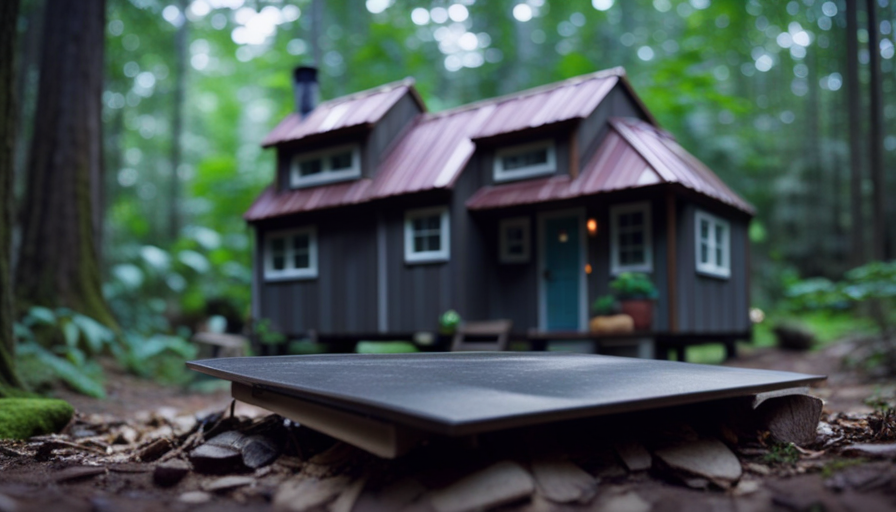
Building your own tiny home may seem like a daunting task, but I can assure you it is a truly rewarding adventure! From the initial research and planning stages to the final touches and the day you finally move in, every step of this journey is filled with excitement and satisfaction.
Now, I won’t lie to you, building a tiny house is no small feat. It requires careful research, meticulous planning, and a whole lot of elbow grease. But fear not, because I’m here to guide you through the journey, step by step.
In this article, we’ll explore the timeline of building a DIY tiny house. From the moment you acquire the necessary materials and permits, to the foundation and framing, electrical and plumbing installations, and finally, the interior and exterior finishes – we’ll cover it all.
So grab your tool belt and get ready to dive into the world of DIY tiny house building. By the end of this article, you’ll have a clear understanding of how long it takes to turn your dreams into reality.
Let’s get started!
Key Takeaways
- Building a DIY tiny house requires research, planning, and hard work.
- The timeline of building a DIY tiny house includes researching and planning, acquiring materials and permits, foundation and framing, electrical and plumbing installations, and interior and exterior finishes.
- The benefits of building a tiny house include affordability, sustainability, and a minimalist lifestyle.
- Key steps in the DIY tiny house building process include creating a blueprint, calculating costs, creating a timeline, acquiring materials from local hardware stores, online suppliers, and salvage yards, obtaining permits and licenses by complying with regulations and filling out applications, and utilizing salvage yards for cost savings and uniqueness.
Research and Planning Stage
You should start by researching and planning your DIY tiny house so you can ensure that you have a solid foundation before you begin construction.
Researching the benefits of building a tiny house allows you to understand the advantages, such as affordability, sustainability, and the freedom to live a minimalist lifestyle. By gathering information on different designs, materials, and construction methods, you can make informed decisions that align with your needs and preferences.
The planning process involves creating a detailed blueprint, calculating the costs, and creating a timeline for the project. This stage is crucial as it helps you anticipate challenges, identify potential solutions, and avoid costly mistakes.
Once you have completed the research and planning stage, you can move on to acquiring materials and permits, ensuring a smooth transition into the next phase of your DIY tiny house journey.
Acquiring Materials and Permits
When it comes to acquiring materials for my DIY tiny house project, I plan to source them from various places such as local hardware stores, online suppliers, and even salvage yards for reclaimed materials. This will help me to find the best quality materials at the most affordable prices.
Additionally, I understand the importance of obtaining the necessary permits and licenses for my tiny house, as it’ll ensure that my project is legal and up to code. I’ll research the specific requirements for my area and work with the appropriate authorities to ensure a smooth and compliant construction process.
Source Building Materials
To save time and money, I started by sourcing building materials from local salvage yards and repurposing them for my DIY tiny house. There are several sourcing options available, including salvage yards, architectural salvage stores, and online marketplaces.
When considering the cost, it was important to compare prices and factor in transportation costs. I found that salvage yards offered a wide range of materials at lower prices, especially if I was willing to put in some extra effort to clean and refurbish them. Additionally, repurposing materials not only saved money but also added a unique touch to my tiny house.
By using reclaimed wood for the flooring and salvaged windows for natural lighting, I was able to create a sustainable and eco-friendly living space. Now that I had sourced my materials, it was time to obtain necessary permits and licenses, ensuring that my tiny house complied with local regulations.
Obtain Necessary Permits and Licenses
After sourcing building materials from local salvage yards and repurposing them, it was time to ensure that necessary permits and licenses were obtained for my eco-friendly living space. Here are the steps I took to obtain the permits and meet the licensing requirements:
-
Research: I began by researching the specific permits and licenses needed for building a tiny house in my area. This included zoning regulations, building codes, and any special requirements for eco-friendly structures.
-
Application: Once I had gathered all the necessary information, I filled out the permit application and submitted it to the local building department. This included providing detailed plans and specifications for the tiny house.
-
Review and Approval: The building department reviewed my application, plans, and specifications to ensure compliance with all regulations. They may have requested revisions or additional information before granting approval.
-
Fees and Inspections: After receiving approval, I paid the required fees and scheduled inspections at various stages of the construction process to ensure compliance with building codes.
With the necessary permits and licenses in hand, I could now move on to the next step of my tiny house project: foundation and framing.
Foundation and Framing
Once you’ve laid a solid foundation for your tiny house, the framing becomes the backbone, giving structure and strength to your dream home like a sturdy spine supports the human body.
Before starting the framing process, it’s crucial to ensure that the foundation is properly prepared. This includes leveling the ground, adding gravel and compacting it to create a stable base.
Once the foundation is ready, you can begin the framing process by constructing the walls, roof, and floor systems. Framing techniques such as platform framing or post-and-beam construction can be used, depending on your design preferences and local building codes.
Precision and accuracy are essential during this stage to ensure that the walls are plumb, the roof is properly supported, and the overall structure is sturdy.
With the framing complete, you can then move on to the next exciting step of electrical and plumbing installations, seamlessly connecting your tiny house to essential utilities.
Electrical and Plumbing Installations
When connecting your tiny home to essential utilities, you’ll need to carefully consider the electrical and plumbing installations, ensuring they are done correctly and safely.
For the electrical wiring, it’s crucial to plan the layout and determine the right gauge of wires to handle the load. Install outlets strategically throughout the house, considering the locations of appliances and devices. Additionally, don’t forget to include a breaker box to control the flow of electricity and ensure safety.
Regarding the plumbing system, start by installing a water supply line and connect it to a reliable source. Consider the size of the pipes and the water pressure needed. Install a water heater and connect it to the plumbing system.
For waste disposal, install a toilet, sink, and shower, connecting them to the sewage system or a septic tank.
Next, we will move on to the interior and exterior finishes, giving your tiny house a beautiful and functional appearance.
Interior and Exterior Finishes
To achieve a stunning and inviting look for your tiny home, you’ll eagerly explore the world of interior and exterior finishes, transforming your humble abode into a breathtaking oasis.
When it comes to tiny house paint colors, it’s important to choose hues that create a sense of openness and serenity. Light and neutral shades such as whites, creams, and pastels can make your space feel more spacious and airy. Additionally, consider incorporating pops of color through accent walls or colorful furniture to add personality and visual interest.
As for tiny house landscaping ideas, think about creating a cozy outdoor space that complements the overall design of your tiny home. Utilize vertical gardens, potted plants, and strategic placement of outdoor furniture to maximize the limited space.
With the right finishes, your tiny home will truly shine.
Moving forward to the next section on cabinetry and fixture installation, we’ll explore how to optimize storage and functionality within your tiny home.
Cabinetry and Fixture Installation
Get ready to optimize your storage and functionality by diving into the world of cabinetry and fixture installation in your tiny home. Cabinet design plays a crucial role in maximizing space, so it’s important to carefully plan the layout and dimensions. Consider utilizing custom-built cabinets to fit perfectly into the available space. When selecting fixtures, choose ones that are both functional and aesthetically pleasing. Look for compact options that can be easily installed in your tiny home without taking up too much space. To evoke emotion in the audience, here’s a table showcasing popular cabinet and fixture options:
| Cabinet Design | Fixture Selection |
|---|---|
| Open Shelving | Wall-mounted Sink |
| Pull-out Drawers | Space-saving Toilet |
| Corner Cabinets | Compact Shower |
| Overhead Cabinets | Foldable Faucet |
| Hidden Storage | Wall-mounted Mirror |
With these cabinetry and fixture choices, your tiny home will not only be functional but also visually appealing. Now, let’s move on to the final touches and move-in.
Final Touches and Move-In
Now that the cabinetry and fixtures are installed, it’s time to focus on the final touches and move-in process for my DIY tiny house.
The first step is to install lighting and hardware throughout the house, ensuring that every corner is well-lit and functional.
Once that’s done, I can begin to furnish and decorate the space, carefully selecting pieces that maximize both comfort and functionality in this small living area.
Install Lighting and Hardware
Once you’ve chosen the perfect lighting fixtures and hardware, it’s time to install them in your DIY tiny house.
Lighting fixtures play a crucial role in creating the desired ambiance and functionality of your living space. Begin by carefully following the manufacturer’s instructions for installation, ensuring that all electrical connections are secure and safe.
Whether you opt for recessed lights, pendant lights, or wall sconces, position them strategically to illuminate key areas such as the kitchen, bathroom, and living room. Additionally, consider installing dimmer switches to control the brightness and create different moods throughout the day.
As for hardware installation, focus on functionality and aesthetics. Install door handles, drawer pulls, and cabinet knobs that match the overall style of your tiny house. These finishing touches will add a touch of personality and enhance the overall look and feel of your cozy abode.
With the lighting fixtures and hardware in place, it’s time to move on to the next exciting step – furnish and decorate the tiny house.
Furnish and Decorate the Tiny House
Transform your small space into a cozy and stylish haven by carefully selecting furnishings and adding personalized decor.
To make the most of your tiny house, consider these furniture arrangement tips:
-
Choose multi-functional pieces: Opt for furniture that serves more than one purpose, such as a sofa bed or a coffee table with hidden storage.
-
Maximize vertical space: Utilize tall bookshelves and wall-mounted storage units to free up floor space and keep your belongings organized.
-
Create an illusion of space with color: Light and neutral color schemes can make your tiny house feel more open and spacious. Consider using pastel shades or white as the base color and adding pops of color with accent pieces or artwork.
By carefully arranging your furniture and selecting the right color scheme, you can create a functional and visually appealing tiny house that feels like a home.
Frequently Asked Questions
Can I build a tiny house without any prior construction experience?
Sure, building a tiny house without any prior construction experience is definitely possible.
In fact, a surprising statistic shows that nearly 70% of tiny house builders have little to no construction background.
While it may seem daunting at first, there are plenty of resources available, such as online tutorials and workshops, that can guide you through the process step-by-step.
With dedication, patience, and a willingness to learn, anyone can successfully tackle building their own tiny house.
How much does it typically cost to build a DIY tiny house?
In terms of cost estimation and budget planning, building a DIY tiny house can vary greatly depending on factors such as size, materials, and location.
On average, though, the cost to build a DIY tiny house ranges from $10,000 to $30,000. It’s important to carefully consider expenses for materials, permits, utilities, and any necessary tools or equipment. Additionally, researching and comparing prices can help ensure you stay within your budget during the construction process.
Are there any specific building codes or regulations I need to follow when constructing a tiny house?
When constructing a tiny house, it’s crucial to adhere to building codes and regulations. These codes and regulations vary depending on your location, so it’s essential to research and understand the specific requirements in your area.
Building codes typically cover aspects such as minimum square footage, ceiling height, electrical and plumbing systems, safety measures, and zoning restrictions. By following these guidelines, you can ensure the legality and safety of your tiny house construction project.
What are the most common challenges people face when building a DIY tiny house?
When building a DIY tiny house, common challenges include managing limited space, optimizing storage solutions, and ensuring proper insulation and ventilation.
To maximize space, I recommend using multi-functional furniture, such as sofas with built-in storage or foldable tables. Additionally, utilizing vertical space through lofted sleeping areas or high shelves can be helpful.
It’s also crucial to carefully plan the layout and prioritize essential features to make the most of the available square footage.
How long does it take on average to complete the construction of a DIY tiny house?
On average, it takes about 1,000 hours to complete the construction of a DIY tiny house. This statistic is fascinating because it highlights the level of dedication and commitment required for such a project.
The construction process involves various stages, including planning, designing, obtaining permits, framing, electrical work, plumbing, insulation, and finishing touches. Each step requires careful attention to detail, which contributes to the overall time it takes to finish the project.
Conclusion
In conclusion, building a DIY tiny house is a rewarding and fulfilling project that requires careful planning, hard work, and attention to detail.
From the research and planning stage to the final touches and move-in, every step of the process is crucial in creating a comfortable and functional living space.
By acquiring the necessary materials and permits, constructing a solid foundation and framing, installing electrical and plumbing systems, and adding interior and exterior finishes, one can create a personalized and efficient home.
So why wait? Embark on this journey and ask yourself, isn’t it time to create the perfect tiny house for yourself?
Hi, I’m Emma. I’m the Editor in Chief of Tiny House 43, a blog all about tiny houses. While tree houses are often associated with childhood, they can be the perfect adult retreat. They offer a cozy space to relax and unwind, surrounded by nature. And since they’re typically built on stilts or raised platforms, they offer stunning views that traditional homes simply can’t match. If you’re looking for a unique and romantic getaway, a tree house tiny house might just be the perfect option.
Beginners Guides
What Are These Little Tiny Flies In My House

Have you ever walked into your house and been greeted by a swarm of small flies? While they may seem harmless at first, they can quickly become a nuisance.
Picture this: you enter your home, and as you make your way through the rooms, you notice these small flies buzzing around your face, landing on your food, and multiplying seemingly overnight. It’s enough to make anyone feel frustrated and disgusted.
But fear not, for I am here to shed some light on the mystery of these little pests. In this article, we will delve into the world of small flies and explore their types, breeding habits, and how to locate their breeding sources. We will also discuss preventive measures, homemade traps, and remedies you can try.
So, let’s dive in and discover what these little tiny flies in your house are all about.
Key Takeaways
- Small flies in the house are usually found near sources of food or moisture.
- Identifying and eliminating breeding sources is crucial for controlling small fly infestations.
- Regularly checking for standing water, reducing humidity, and cleaning up spills and food debris can help prevent fly infestations.
- Using natural fly repellents, regular cleaning routines, and properly sealing entry points can reduce the likelihood of attracting flies.
Identify the Types of Small Flies
These little tiny flies in my house can be identified by their distinct characteristics. Common signs of a small fly infestation include the presence of small flies buzzing around the house, especially near sources of food or moisture.
These flies are usually small, measuring only a few millimeters in length, and are commonly found near garbage cans, sinks, or drains. They have a short lifespan of only a few weeks, but their rapid reproduction can quickly lead to a large infestation if not addressed promptly.
Besides being a nuisance, small flies in the house can pose potential risks and health hazards. They’re known to carry and spread bacteria, such as E. coli and Salmonella, which can contaminate food and surfaces. This can lead to foodborne illnesses and other infections. Additionally, some people may experience allergic reactions to small fly allergens, resulting in symptoms like watery eyes, sneezing, and respiratory issues.
To understand their breeding habits, it’s essential to investigate the areas where these flies are commonly found, such as drains, garbage cans, or moist areas. By identifying their breeding grounds, it becomes easier to eliminate their presence and prevent future infestations.
Understand their Breeding Habits
Understanding their breeding habits can help you tackle the persistent presence of these minuscule pests. Small flies, such as fruit flies and drain flies, have distinct life cycles that contribute to their population growth. By understanding these cycles, you can implement effective strategies to control their population.
-
Fruit flies: These tiny insects lay their eggs on fermenting fruits and vegetables. The eggs hatch into larvae within 24-48 hours, and the larvae feed on the decaying matter for about a week. After pupating for another week, adult fruit flies emerge and the cycle continues.
-
Drain flies: These flies breed in moist areas, such as drains, sewage pipes, or standing water. Their eggs are laid in gelatinous masses, which adhere to surfaces. The larvae, also known as ‘wigglers,’ feed on organic matter in the breeding site. They pupate for about a week before emerging as adults.
Understanding their life cycle allows you to target their breeding sources effectively. By locating and eliminating these breeding sources, you can significantly reduce their population.
In the next section, we will explore how to locate the breeding sources and eradicate them completely.
Locate the Breeding Sources
To effectively tackle the persistent presence of these pesky insects, you need to locate where they’re breeding. Identifying the breeding sources is crucial in order to eliminate them and prevent future infestations.
One effective method is to use insecticides specifically designed to target the breeding sources of these tiny flies. These insecticides contain ingredients that disrupt the life cycle of the flies, preventing them from reproducing and eventually eliminating the population.
It’s also important to consider the impact of climate and weather on fly infestations. Flies thrive in warm and humid environments, making it essential to control the moisture levels in your house. Regularly check for any areas with standing water, such as leaky pipes or clogged drains, as these can serve as breeding grounds for flies. Additionally, ensure proper ventilation and reduce humidity levels in your home by using dehumidifiers or fans.
By effectively targeting the breeding sources and considering the impact of climate and weather, you can significantly reduce the presence of these tiny flies in your house. Taking preventive measures, which we’ll discuss in the next section, will help to ensure a fly-free environment.
Take Preventive Measures
To prevent the presence of these tiny flies in my house, I should take some preventive measures. Firstly, I need to clean up spills and food debris immediately to eliminate potential breeding sources.
Secondly, I should regularly clean and maintain drains to ensure they’re free from organic matter that could attract these flies.
Lastly, I need to avoid overwatering my houseplants, as the excess moisture can create an ideal breeding environment for these pests.
Additionally, it’s important to seal cracks and crevices and properly dispose of garbage to minimize their entry and attraction to my home.
Clean up spills and food debris
Clean up spills and food debris to keep those little tiny flies out of your house, as studies have shown that a single spilled sugary drink can attract up to 500 flies. To effectively prevent fly infestations, follow these cleaning tips:
- Wipe up spills immediately to eliminate any food sources.
- Store food in airtight containers to deprive flies of easy access.
- Regularly sweep and vacuum floors to remove any food crumbs.
- Dispose of garbage promptly and keep trash cans tightly sealed.
Additionally, you can use natural fly repellents like essential oils or vinegar solutions to deter flies from entering your home. By incorporating these preventive measures into your cleaning routine, you can significantly reduce the likelihood of attracting those pesky little flies.
It’s crucial to regularly clean and maintain drains as well, as they can become breeding grounds for flies.
Regularly clean and maintain drains
After taking care of spills and food debris, it’s important to shift our attention to another potential breeding ground for those pesky flies – the drains. Regularly cleaning and maintaining drains is crucial in preventing fly infestations in our homes.
Flies are attracted to the organic matter that accumulates in our drains, providing them with a perfect environment to lay their eggs. To combat this issue, there are a few drain cleaning tips to follow.
Firstly, pour boiling water down the drain to flush out any debris. Then, use a mixture of baking soda and vinegar to break down grease and eliminate odors. Finally, a drain brush can be used to physically remove any remaining buildup.
By incorporating these tips into our cleaning routine, we can effectively reduce the likelihood of fly infestations in our homes.
Moving forward, let’s explore how to avoid overwatering houseplants.
Avoid overwatering houseplants
Carefully monitoring the watering schedule of our beloved houseplants is crucial to ensure their health and prevent any unnecessary damage. Here are four important points to consider when it comes to watering your houseplants:
-
Importance of using well-draining soil for houseplants: Using well-draining soil allows excess water to escape, preventing waterlogging and root rot.
-
Avoid overwatering: Overwatering is a common mistake that can lead to root rot, fungus gnats, and other pests. Only water when the top inch of soil is dry.
-
Water thoroughly but infrequently: When watering, make sure to thoroughly moisten the soil, but allow it to dry out between waterings. This promotes healthy root growth.
-
Use the right watering technique: Instead of watering from the top, consider bottom watering by placing the plant in a tray of water and allowing it to soak up moisture.
By following these guidelines, you can maintain healthy houseplants and minimize the risk of attracting pests. Speaking of pests, let’s now discuss how to seal cracks and crevices to prevent their entry into our homes.
Seal cracks and crevices
To keep unwelcome critters at bay, it’s essential to seal cracks and crevices like a fortress protecting its treasures. These tiny flies may find their way into your house through small openings in walls, windows, or doors. By sealing these entry points, you can create a barrier that prevents their intrusion.
Start by inspecting your home for any visible cracks or gaps and use caulk or weatherstripping to seal them. Pay special attention to areas where pipes or wiring enter your home, as these are common entry points for pests. Additionally, ensure that your windows and doors are properly sealed with weatherproofing materials.
By eliminating these potential entryways, you can significantly reduce the chances of these pesky flies infiltrating your living space.
Now, let’s move on to the next step of properly disposing of garbage.
Properly dispose of garbage
To effectively combat the issue of tiny flies in your home, it’s crucial to address the proper disposal of garbage. These pesky insects are attracted to decaying organic matter, making your garbage an ideal breeding ground for them. To prevent their infestation, follow these steps:
-
Ensure that your garbage bins have tight-fitting lids to prevent flies from accessing the contents.
-
Regularly empty and clean your garbage bins to eliminate any potential food sources for the flies.
-
Consider using garbage bags that are specifically designed to repel flies and other pests.
-
If possible, keep your garbage bins away from entrances to your home to minimize the chances of flies finding their way inside.
By properly disposing of your garbage, you can significantly reduce the presence of these flies in your home.
In the subsequent section, we’ll explore the use of homemade traps and remedies to further tackle this issue.
Use Homemade Traps and Remedies
Ah, nothing ruins a cozy evening at home like those pesky little flies buzzing around! But fear not, because there are homemade traps and remedies that can help you show those tiny pests who’s boss. When it comes to dealing with these annoying flies, homemade fly repellents and natural fly control methods can be effective and environmentally friendly alternatives to chemical-based solutions.
To tackle the fly problem, you can create homemade fly traps using common household items. One simple trap involves mixing apple cider vinegar with a few drops of dish soap in a bowl. The vinegar attracts the flies, while the soap breaks the surface tension of the liquid, causing the flies to sink and drown. Another option is a fruit trap, where you can cut up a piece of ripe fruit and place it in a jar with a funnel placed on top. The flies will be attracted to the fruit and will have difficulty finding their way out of the jar.
Additionally, there are natural remedies that can help repel flies from your home. Essential oils like eucalyptus, peppermint, and lavender can be mixed with water and sprayed around the house to deter flies. Citronella candles can also be effective in keeping flies at bay, especially when used in outdoor areas.
By utilizing these homemade traps and remedies, you can significantly reduce the fly population in your house. However, if the infestation persists or becomes unmanageable, it may be necessary to seek professional help. Remember, it’s important to take action against these flies to ensure a comfortable and fly-free living space.
Seek Professional Help if Needed
If those bothersome pests persist and become an overwhelming swarm, don’t hesitate to call in the professionals, like a skilled exterminator who can swoop in like a superhero and rid your home of these winged intruders.
While DIY methods can be effective in controlling small flies in your house, there are some common mistakes to avoid when trying to eliminate them on your own.
One common mistake is not properly identifying the type of fly infestation you’re dealing with. Different species of flies require different treatment approaches. It’s important to accurately identify the flies to determine the most effective method of control.
Additionally, some DIY methods may only provide temporary relief, and the infestation can quickly rebound if not properly addressed.
Another mistake to avoid is not addressing the root cause of the infestation. Small flies are often attracted to moist and decaying organic matter, such as rotting fruits, vegetables, or damp areas in your home. Simply eliminating adult flies without eliminating their breeding sites will not solve the problem in the long term. It’s crucial to identify and eliminate these breeding sources to prevent future infestations.
Lastly, using ineffective or harmful insecticides can be a mistake. It’s important to choose insecticides specifically formulated for small flies and follow the instructions carefully. Avoid using excessive amounts of chemicals, as it can pose health risks to humans and pets.
While DIY methods can be useful in controlling small flies in your home, it’s important to avoid common mistakes and seek professional help if needed. Professional exterminators have the knowledge and experience to accurately identify the fly species, address the root cause of the infestation, and use effective and safe control methods. So, if those tiny flies become too much to handle, don’t hesitate to call in the experts.
Frequently Asked Questions
How do I know if the small flies in my house are harmful or dangerous?
To determine if the small flies in your house are harmful or dangerous, look for signs of infestation and potential health risks. Prevent infestation by keeping your house clean and dry. For extermination, consider using methods like traps, insecticides, or professional pest control services.
Can small flies in my house transmit diseases?
Small flies in my house can indeed carry diseases and pose a health risk. These tiny insects may transmit bacteria and viruses through contact with contaminated surfaces or by biting humans. It’s important to take measures to eliminate them.
Are small flies attracted to certain types of food or materials?
Small flies are attracted to common food sources such as fruits, vegetables, and decaying organic matter. To prevent infestation, it is crucial to maintain cleanliness, store food properly, and eliminate any potential breeding sites.
How long does it take for small flies to breed and multiply in my house?
The breeding habits and life cycle of small flies in my house vary depending on the species. Some can multiply rapidly, laying eggs every few days and completing their life cycle in as little as one week.
What are some common mistakes people make when trying to get rid of small flies in their homes?
Common mistakes people make when trying to rid their homes of small flies: believing they are harmless, neglecting proper sanitation, and relying solely on chemical sprays. Effective natural remedies include vinegar traps and regular disposal of organic waste.
Conclusion
In conclusion, these little tiny flies in my house are truly fascinating creatures. Despite their annoying presence, they serve as a reminder of the intricate web of life that surrounds us.
From the fruit flies that breed in the depths of our trash cans to the fungus gnats that thrive in our potted plants, every nook and cranny of our homes becomes a haven for these resilient insects.
So, next time you spot one buzzing around, take a moment to appreciate the irony of these minuscule beings disrupting our otherwise pristine abodes.
Hi, I’m Emma. I’m the Editor in Chief of Tiny House 43, a blog all about tiny houses. While tree houses are often associated with childhood, they can be the perfect adult retreat. They offer a cozy space to relax and unwind, surrounded by nature. And since they’re typically built on stilts or raised platforms, they offer stunning views that traditional homes simply can’t match. If you’re looking for a unique and romantic getaway, a tree house tiny house might just be the perfect option.
-
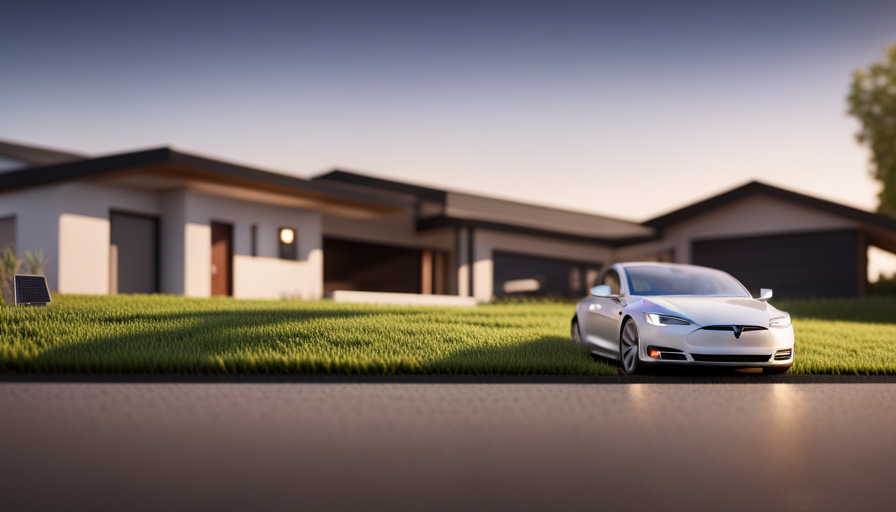
 Beginners Guides6 months ago
Beginners Guides6 months agoHow To Buy A Tesla Tiny House
-
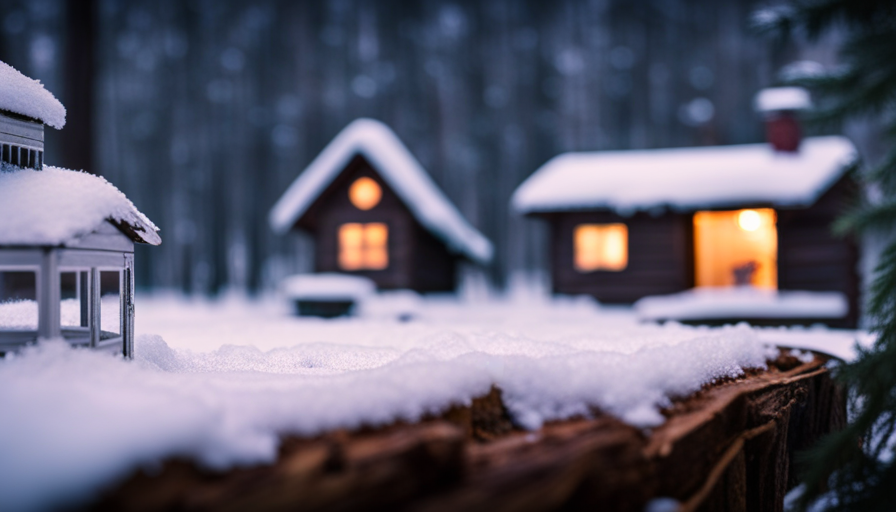
 Energy Efficiency4 months ago
Energy Efficiency4 months agoBest Tiny Homes For Cold Climates
-
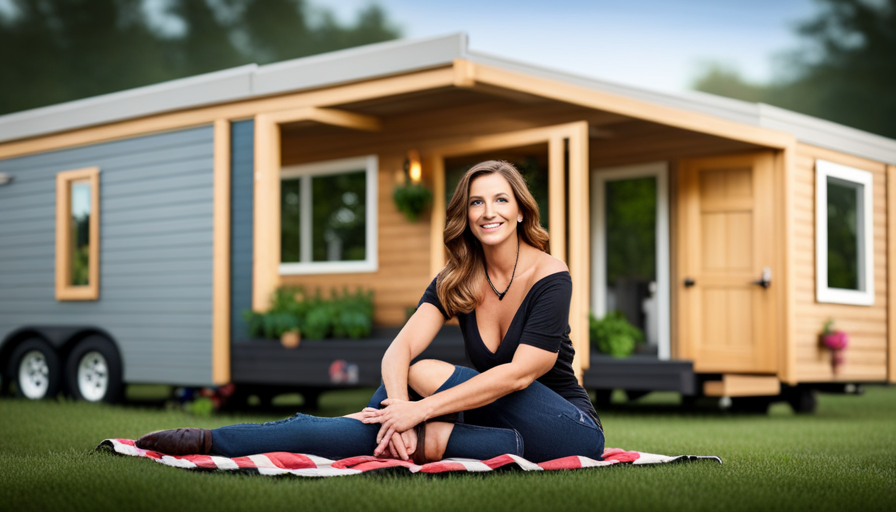
 Beginners Guides6 months ago
Beginners Guides6 months agoTiny House Nation Where Are They Now Stephanie
-
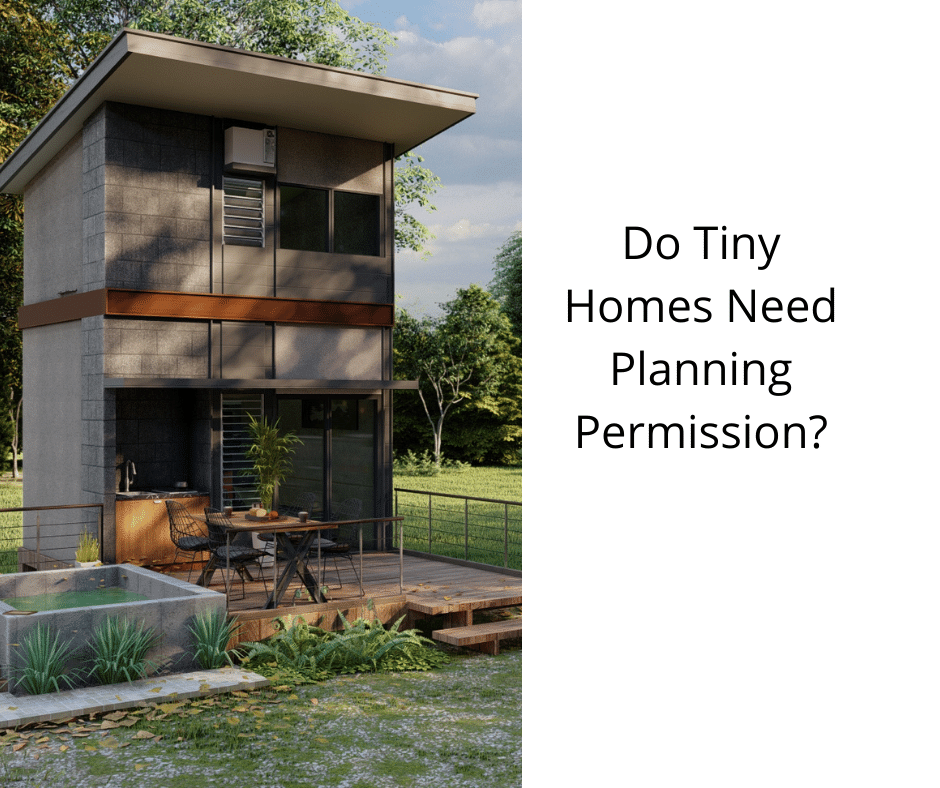
 Tiny House Resources (e.g., legalities, cost, insurance, FAQs)4 months ago
Tiny House Resources (e.g., legalities, cost, insurance, FAQs)4 months agoDo Tiny Homes Need Planning Permission?
-
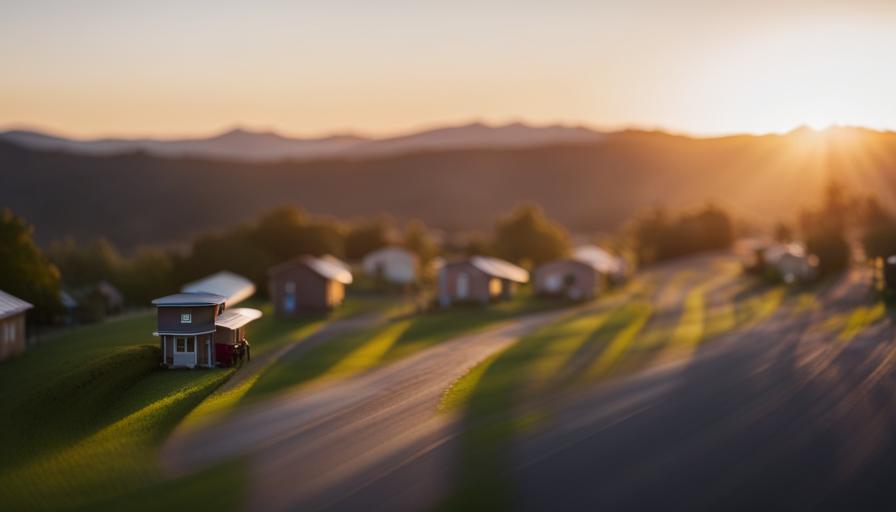
 Beginners Guides3 months ago
Beginners Guides3 months agoFrom The Show Tiny House Nation How Many Keep Their Tiny House?
-
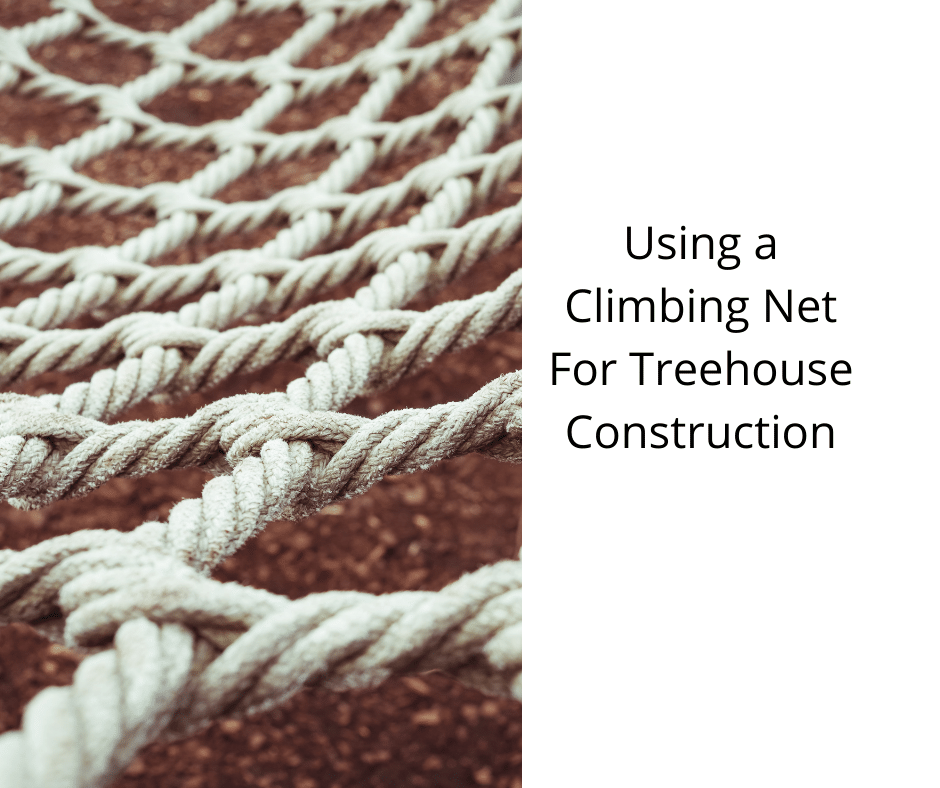
 Beginners Guides4 months ago
Beginners Guides4 months agoUsing a Climbing Net For Treehouse Construction
-
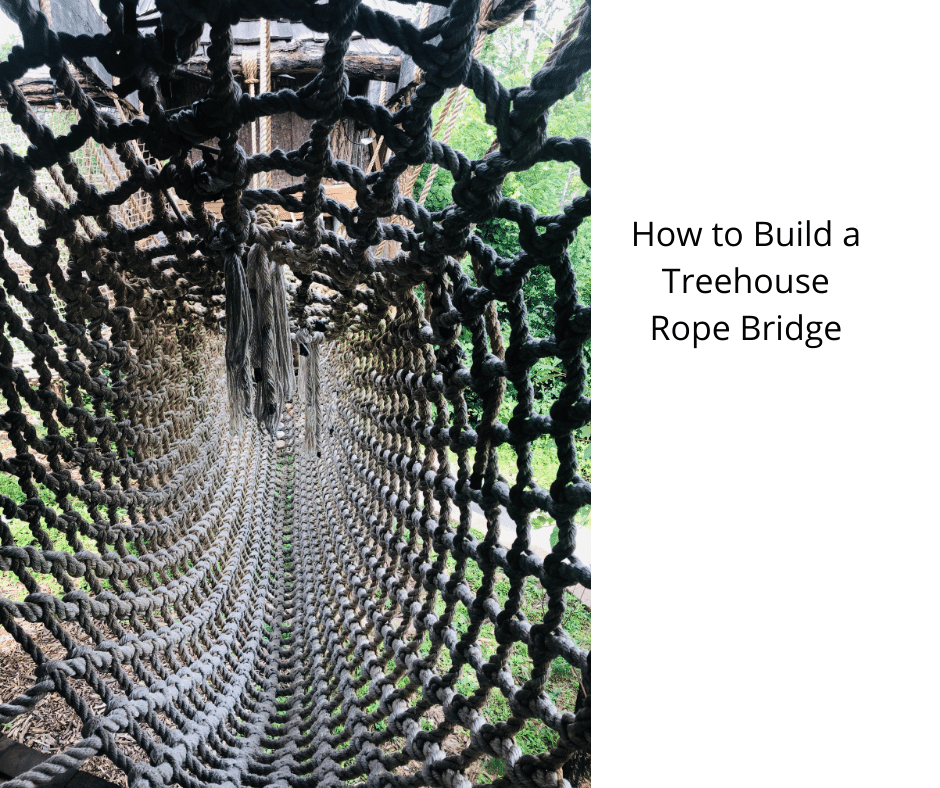
 Beginners Guides4 months ago
Beginners Guides4 months agoHow to Build a Treehouse Rope Bridge
-
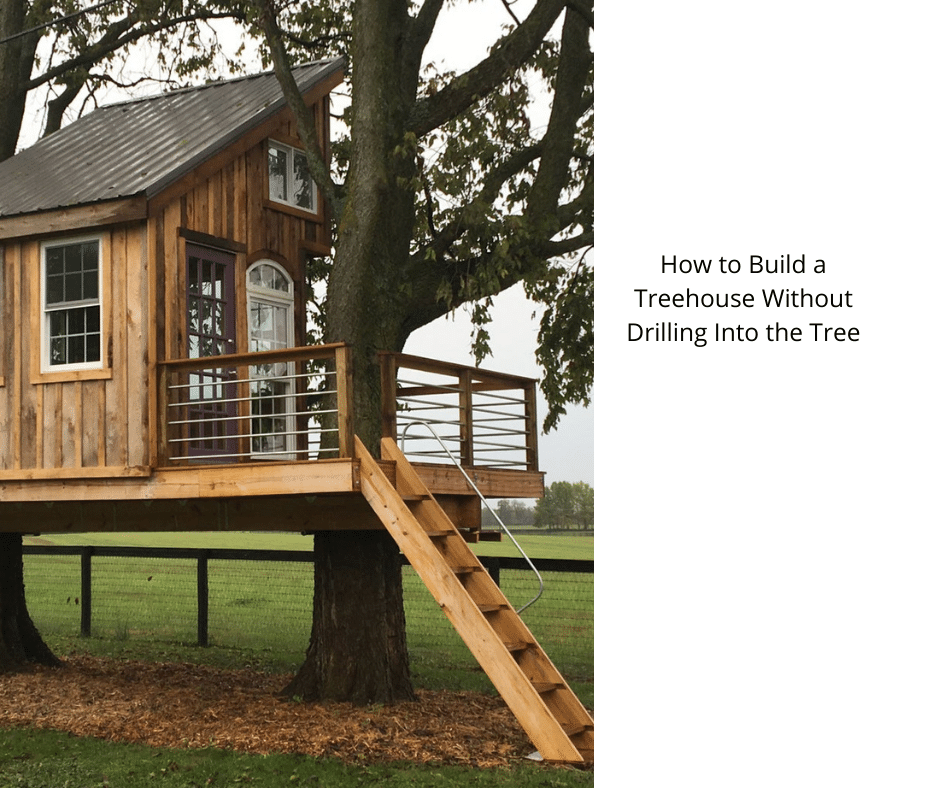
 Beginners Guides4 months ago
Beginners Guides4 months agoHow to Build a Treehouse Without Drilling Into the Tree


